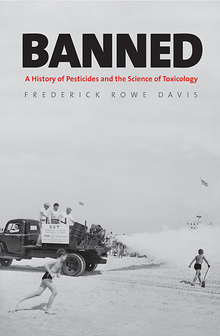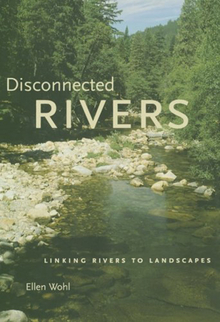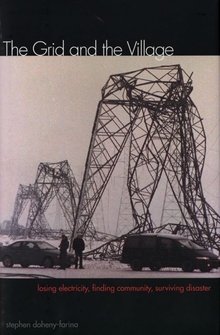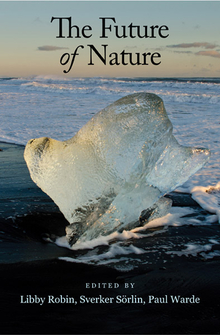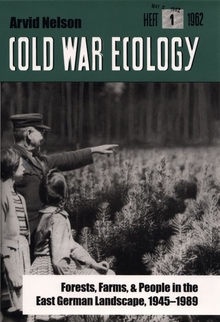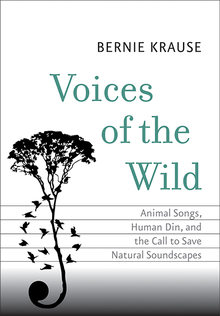Banned
WARNING
You are viewing an older version of the Yalebooks website. Please visit out new website with more updated information and a better user experience: https://www.yalebooks.com
A History of Pesticides and the Science of Toxicology
Frederick Rowe Davis
Silent Spring catalyzed an environmental movement in the 1960s and achieved a ban on DDT, but are the alternatives any less toxic?
Rachel Carson’s eloquent book Silent Spring stands as one of the most important books of the twentieth century and inspired important and long-lasting changes in environmental science and government policy. Frederick Rowe Davis thoughtfully sets Carson’s study in the context of the twentieth century, reconsiders her achievement, and analyzes its legacy in light of toxic chemical use and regulation today.
Davis examines the history of pesticide development alongside the evolution of the science of toxicology and tracks legislation governing exposure to chemicals across the twentieth century. He affirms the brilliance of Carson’s careful scientific interpretations drawing on data from university and government toxicologists. Although Silent Spring instigated legislation that successfully terminated DDT use, other warnings were ignored. Ironically, we replaced one poison with even more toxic ones. Davis concludes that we urgently need new thinking about how we evaluate and regulate pesticides in accounting for their ecological and human toll.
Rachel Carson’s eloquent book Silent Spring stands as one of the most important books of the twentieth century and inspired important and long-lasting changes in environmental science and government policy. Frederick Rowe Davis thoughtfully sets Carson’s study in the context of the twentieth century, reconsiders her achievement, and analyzes its legacy in light of toxic chemical use and regulation today.
Davis examines the history of pesticide development alongside the evolution of the science of toxicology and tracks legislation governing exposure to chemicals across the twentieth century. He affirms the brilliance of Carson’s careful scientific interpretations drawing on data from university and government toxicologists. Although Silent Spring instigated legislation that successfully terminated DDT use, other warnings were ignored. Ironically, we replaced one poison with even more toxic ones. Davis concludes that we urgently need new thinking about how we evaluate and regulate pesticides in accounting for their ecological and human toll.
Frederick Rowe Davis is associate professor of history at Florida State University. A lifelong birder and naturalist, he is author of The Man Who Saved Sea Turtles. He lives with his son in Tallahassee, Florida.
“This is a fundamentally important, up-to-date analysis of environmental toxicology after Silent Spring. It is simultaneously nuanced and forceful in its arguments.”—Daniel Lewis, Huntington Library
“Banned’s emphasis on the development of toxicology is unique, compelling, and convincing. It is also crucial for understanding how Silent Spring was constructed, the controversy that swirled around its publication, and the impact it had on pesticide regulation in the United States.”—Mark V. Barrow, Jr., author of Nature’s Ghosts: Confronting Extinction from the Age of Jefferson to the Age of Ecology
“Banned is an excellent and much-needed history of pesticides. Davis provides a compelling analysis of the ways policymakers understand risk. Most important, he offers a useful ecological alternative to current risk calculations. Toxicologists, policymakers, and historians will benefit from this clearly-written book.”—Nancy Langston, author of Toxic Bodies: Hormone Disruptors and the Legacy of DES
“Banned is an ironic history of successes and unintended consequences in the struggle to defeat insect pests through pesticides . . . . Davis is clear about the irony of banning some pesticides only to replace them with new chemicals that are just as problematic or more so. The coevolution of toxicology with pesticides is clearly traced. Recommended.”—CHOICE
“Th[is] richly researched and well-written stud[y] provide[s] many new insights for scholars as well as important applications for policymakers to address ongoing ecological challenges.”—David D. Vail, Studies in History and Philosophy of Biological and Biomedical Sciences
“Davis provides a powerful, nuanced account of the costs and benefits of banning DDT which threatens wildlife through bioaccumulation, versus organophosphates, which threaten human health from acute exposures.”—Rachel Emma Rothschild, Endeavor
ISBN: 9780300205176
Publication Date: November 25, 2014
Publication Date: November 25, 2014
288 pages, 6 1/8 x 9 1/4
5 b/w illus.
5 b/w illus.

